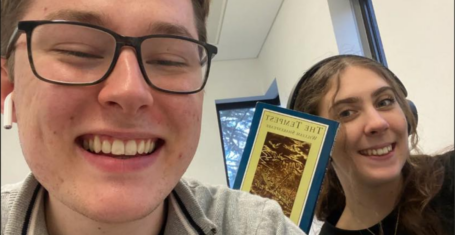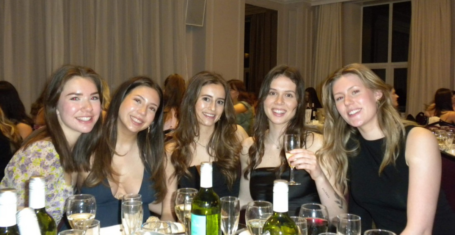
I need feminism because I’m NOT average
If you are a woman reading this, without feminism, chances are you would not be in University…
A very broad but most easily accessible definition of feminism would be the belief in utter and complete gender equality.
That means that men and women are paid the same for doing the same job (which, believe it or not, doesn’t actually happen in most cases).
That means that women of all races, classes, sexualities, etc., are protected from sexual harassment, domestic violence and sexual abuse, and that the rights of women are stood up for when it comes to their wellbeing and mental health.
That means that women are just as able to succeed in a professional environment, without having to sacrifice their identity as women, or their integrity as individuals.
It means that women are not expected to act a certain way so as to be defined as women.
The term ‘feminism’ was coined in the early 1800s, but the feminist movement didn’t gain momentum until towards the early 20th century.
We can split feminism up into three waves, with each wave dealing with different issues within the fight for gender equality.
First-wave feminism dealt mainly with the gaining of political power by women. Before the suffragette’s movement, women were not allowed to own property, to vote, or to seek other means of independent living apart from men.
Second-wave feminism began in the late 1960s, and focused on issues of equality, such as ending discrimination.
This ties into third-wave feminism (what we are currently experiencing), which additionally focuses on women’s sexual freedom and the emphasis on equality for women from all cultures, classes, etc.
Put it this way: if you are a woman reading this, without feminism, chances are you would not be in University.
You would not be able to get an education and go pursue whatever career it was that you wanted.
You would not be allowed to own your own apartment in the future, or have access to contraception that would allow you to exercise your right to not have children.
The BBC estimated in the early 2000s that every 26 seconds, a woman is raped in South Africa. In many countries across the globe, marital rape is still condoned and accepted.
There are currently approximately 35 million fewer females in China than males, due to the drastically high levels of female infanticide. Women are valued so much less than boys that families are willing to commit murder in order to have a chance at a son.
Feminists have made progress in the past hundred years or so, this cannot be denied, but the issue of unequal gender politics is still rearing its ugly head after all this time.
If we are to be called ‘aggressive’ in our approach to the political, social and economic position of women in the modern world, it’s because that is the way to be heard.
And we can feel it not just on a global scale, but locally. The local Exeter charity, Stop Abuse for Everyone (SAFE) recently lost its funding from the Devon County Council, and is looking at being permanently shut down very soon. It has an occupancy rate of 96%, and has provided relief to women for the last 37 years.
If there’s any doubt in your mind as to why this would be so vital to the community, consider that Home Office statistics show that on average two women are killed by a current or ex-male partner EVERY WEEK.
Career prospects should also be considered. The sheer difficulty that a woman has to face in order to succeed in the business world is incredible. She is told to ‘act like a man’ to get what she wants, and that ‘feminine’ qualities will not allow her to succeed in her field.
Feminism is about knocking down these barriers, and explaining to people that there is no such thing as a ‘feminine’ or ‘masculine’ character trait: you can be as sensitive or as brutal as you like, and it doesn’t make you less of a man or a woman.
I also want to reiterate something that many anti-feminists and outsiders to feminism get wrong.
This movement is not about victimizing. This is not about telling women that they are allowed to blame all of their problems on sexism or misogyny. In fact, it’s quite the opposite – feminism is purely about empowering women to seek and create their individual identity.
It’s about trying to create a framework within which we can live out full and happy lives, regardless of what each woman considers that to be for herself.
Women need to know that it is not okay for someone to whistle at you as you walk down the street.
It is not okay to be told that you cannot pursue a career path because that field is not ‘feminine.’
It is not okay to be harassed by a man, and then told ‘that’s just the way boys are.’
It is not okay to called a slut because you enjoy casual sex, or for a judge to ask you what you were wearing during a trial for a rape case.
There is no biological predisposition that says women are inferior to men. We are not making excuses for ourselves – we are trying to empower ourselves.









































